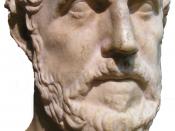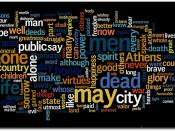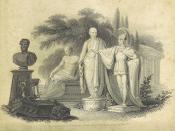"History,"ÃÂ Tosh tells us, "as a disciplined inquiry aims to sustain the widest possible definition of memory, and to make the process of recall as accurate as possible, so that our knowledge of the past is not as confined to what is immediately relevant. The goal is a resource with an open-ended application, instead of a set of mirror-images of the present."ÃÂ (Tosh, 2) The process of creating history, then, is less of an art and more of a science. It requires careful consideration and calculated analysis of the facts. Less poetic than journalistic, the writing of history aims to clearly present these facts, their impact in their own time, and their implications for today.
However the modern approach to historical scholarship does not always apply to historians of the past. Two principles of recording history have emerged over time; one most like colorful ancient mythology is written to teach future generations from the mistakes of the past.
The other like the antiseptic examination today, detached of moral application. Two ancient historians clearly evidence these positions: history as art and history as science. Tacitus and Thucydides, respectively, represent these views.
Tacitus wrote his account, The Annals, with clear intentions. He was recounting the deeds of the past so that those who learned from his work would not repeat the same mistakes.
"So now after a revolution, when Rome is nothing but the realm of a single despot, there must be good in carefully noting and recording this period, for it is but a few who have the foresight to distinguish right from wrong or what is sound from what is hurtful, while most men learn wisdom from the fortunes of others."ÃÂ (Tacitus, 4.33) The function of history was not to dictate every mundane detail, but to trace the best...


